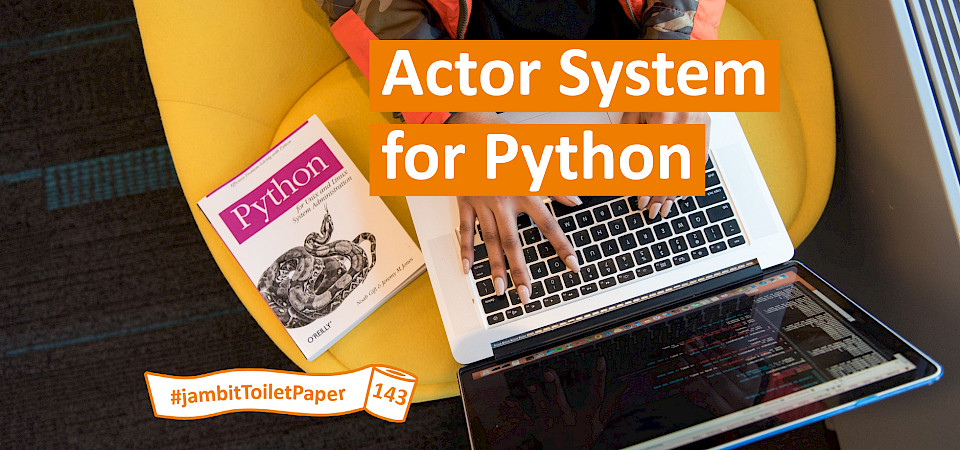Actor System for Python
Problem
Actor Systems have been around for quite a while (emerged in the 1970s in the context of AI research) and provide a reliable method for highly parallel program execution. The best-known systems today are probably Erlang, Elixir, and Akka. Oh, how I wish that there would be such a system to handle the more and more frequent Python back-end requests…
Solution
Look over there! In fact, there is an Actor System for Python: Thespian. A mature and well-documented library that provides a reasonable base:
- “Actor spawning” and “message passing” is taken over.
- Timeouts can be realized via delayed messages.
- In the background, a separate OS process is created for each actor. This makes it somewhat heavier, but as a side effect, the GIL is bypassed.
- Actors can be stopped by message (this also stops the process).
- Log messages are collected and merged.
- With the ActorTypeDispatcher there is a base class, which sorts the received messages by type and calls specialized methods (which need to be written).
- The system can also “monitor” file descriptors and sockets (via select) without blocking the whole actor.
- There is a “dead letter handling” for messages with disappeared recipients.
- There is a feedback (as a message), if the own message has caused another actor to stumble (i.e.: exception)
- You can register actors globally under a name (with the usual side effects).
- A feature called “actor troupes” allows horizontal scaling of actors.
- Shell commands can be executed by an actor and the output can be reported (wrapper around subprocess.Popen).
Example
from thespian.actors import *
class Hello(Actor):
def receiveMessage(self, message, sender):
# a message could be anything that python can pickle/unpickle
self.send(sender, 'Hello, World!')
# the actor keeps running and listening for messages
if __name__ == "__main__":
# the actor system is created as well as a new actor.
# this actor will run as its own OS-process on the same machine
hello = ActorSystem().createActor(Hello)
# send a message to the actor and wait (1 second) for a response
print(ActorSystem().ask(hello, 'hi', 1))
# command the actor to exit
ActorSystem().tell(hello, ActorExitRequest())
Further Aspects
- What is this guy talking about? The actor model!
- Documentation can be found in the Thespian user's guide.
- When Carl Hewitt invented the actor model with his typewriter: “Viewing control structures as patterns of passing messages”.
- What's missing is an ecosystem for “generic patterns” like the one Erlang/OTP offers.
---
Author: Hannes Lerchl / Senior Software Architect / New Business
Download Toilet Paper #143: Actor System for Python (PDF)
Want to write the next ToiletPaper? Apply at jambit!

